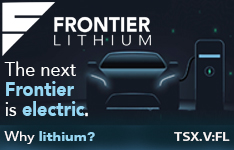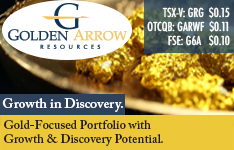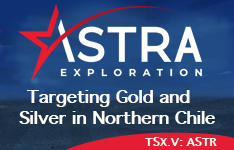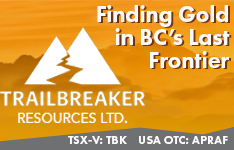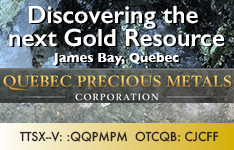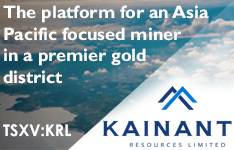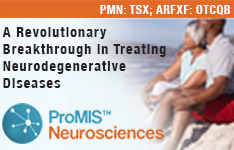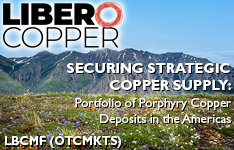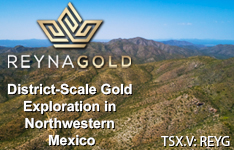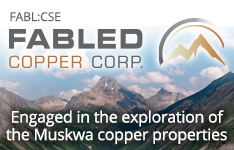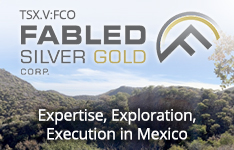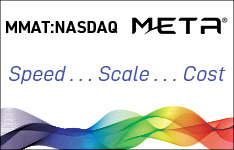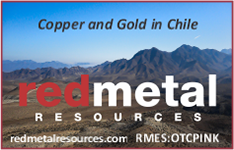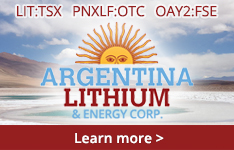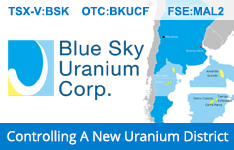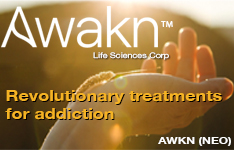In its 2018 Global Status Report on Alcohol the World Health Organization reported that 237 million men and 46 million women globally were “problem drinkers” or abused alcohol. Of those, some 3 million die annually in alcohol-related deaths.
Such comprehensive studies have been limited since the onset of the COVID 19 pandemic, but many alcohol-addiction experts suspect that the problem has only become more widespread since 2020 — and now affects more than 400 million people worldwide.
Here in America, a pre-pandemic estimate by the National Institute on Alcohol Abuse and Alcoholism (NIAAA) suggested that 14.5 million Americans suffered from Alcohol Use Disorder (AUD) in 2019, yet less than 10% sought treatment. AUD remains the third leading cause of preventable deaths in the United States, behind only tobacco and a poor diet.
The number of AUD cases per 100,000 people is even higher in the United Kingdom where a small biotech company is attempting to bring a higher standard of care to those suffering from AUD, while also providing investors the opportunity to profit from the firm’s success.
“What we have developed in our origin business is a proprietary combined therapeutic using ketamine and psychotherapy together to treat AUD. The results of the Phase 2 B trial were three times better than the current standard of care.”
— Awakn Life Sciences Corp. CEO Anthony Tennyson
“What we have developed in our origin business is a proprietary combined therapeutic using ketamine and psychotherapy together to treat AUD. The results of the Phase 2 B trial were three times better than the current standard of care,” Awakn Life Sciences Corp. (AWKN:NEO; AWKNF:OTCQB) CEO and Director Anthony Tennyson told Streetwise Reports.
Treatments for AUD, more commonly known as alcoholism, usually involve going to a clinic like the Betty Ford Center in California and checking in for weeks or even months.
In the U.S. there are some 15,000 clinics treating victims with AUD but Tennyson says these clinics only have about a 25% success rate, despite generating as much as US$40 billion annually.
The most widely used medication to treat AUD is Alkermes Plc's (ALKS:NASDAQ) Vivitrol, which binds to opioid receptors in the brain and essentially blocks them — but with reported side effects like high blood pressure, infections at the point of injection and even erectile dysfunction. Vivitrol sales reached US$343.9 million in 2021, up from US$310.7 the year before.
Awakn, which went public in 2020, has two divisions: one that researches, develops and brings to market pharmacotherapies, while the other operates psychedelic-assisted psychotherapy clinics in the U.K. and Norway that offer the only clinical trial-backed protocol of ketamine-assisted psychotherapy for AUD.
These clinics, with the flagship clinic operating in London, also offer other ketamine-based treatments for things like pornography addiction and Post-traumatic stress disorder (PTSD). The cost of ketamine-assisted treatment is much less than a typical residency clinic, at about £3,000 for a three-session treatment.
Tennyson says each clinic can generate as much as £3 million (US$3.7M) in revenue annually at margins between 20-30%.
Margins like those and the growth potential for other ketamine- and psychedelic-based treatments — and a likely NASDAQ listing in 2023 — prompted Toronto-based Stifel GMP Analyst Andrew Partheniou to give AWKN a Speculative Buy rating in a March 31, 2022 report. His target price for AWKN is CA$8.
Partheniou wrote that clinic revenue could reach $100M by 2024 but that the real growth will come from licensing agreements.
He wrote: “While clinics are an important piece in AWKN’s strategy, we note the company is not seeking to have a widespread footprint of owned clinics throughout the EU or North America. Instead, management expects to open 20 clinics by 2024 in the UK and EU, which we believe could act as flagships to raise awareness of its proprietary Ketamine in the Reduction of Alcoholic Relapse (KARE) model. To rapidly expand its geographic exposure, AWKN is expected to leverage a licensing model, resulting in a capex-light strategy.”
With a pervasive risk-off sentiment supplying a significant headwind in the broad market, AWKN has drifted from a January high of CA$3.36 to close at CA$0.81 on July 8.
The weakened share price has tempered Tennyson’s near-term enthusiasm for 20 clinics by 2024. That’s still the goal, albeit over a longer timeframe.
“The goal is that 15 to 20 (clinics) but most likely over the medium term or rather than holding people's feet to the fire to get 20 clinics opened by 2024,” Tennyson told Streetwise Reports.
Big Catalyst Ahead
The next big catalyst for the share price will be the approval of a grant from the U.K.’s National Institute for Healthcare Research, which would fund two-thirds of £2.5-million (roughly US$3M) Phase 3 study into psychedelic research.
“Awakn is advancing MDMA-assisted therapy for AUD in Europe, which we estimate could have blockbuster drug potential based on the significant unmet medical need and evidence generated to-date pointing to the potential of MDMA-assisted therapy in a variety of mood disorders.”
— H.C. Wainright & Co. Senior Healthcare Analyst Patrick Trucchio
Tennyson says these types of studies would typically cost 10 times as much but Awakn has limited costs by partnering with the University of Exeter and the National Health Service (NHS), the name given to the publicly funded healthcare system in the U.K. The NHS spends hundreds of millions annually treating alcohol-related illnesses.
If the grant is approved, Awakn’s total cost for the study would be about £750,000. Tennyson expects an answer on the grant by the end of July.
H.C. Wainright & Co. Senior Healthcare Analyst Patrick Trucchio wrote that the Phase 3 trials could add even more options to Awakn’s growing list of therapeutic choices, including methylenedioxymethamphetamine-assisted (MDMA) therapy. That’s Ecstasy to you and me – and it remains in illegal in U.S.
In a report dated Feb. 1, 2022, Trucchio wrote: “Awakn is advancing MDMA-assisted therapy for AUD in Europe, which we estimate could have blockbuster drug potential based on the significant unmet medical need and evidence generated to-date pointing to the potential of MDMA-assisted therapy in a variety of mood disorders.”
He added: “Moreover, Awakn’s MDMA-assisted therapy has generated promising Phase 2a data in AUD, which follows the validation of the approach in PTSD in a late-stage program being conducted by MAPS, a non-profit organization based in the U.S.”
Trucchio gives AWKN a Buy rating and a $10 target, while Toronto-based Maxim Group Senior Managing Director Jason McCarthy gives AWKN a $4 target and a Buy rating.
Why Ketamine?
Ketamine is a dissociative anesthetic that was created in the early 1960s as a weaker derivative of phencyclidine (PCP). American soldiers in Vietnam were able to give it to each other after suffering injuries or trauma in combat. Ketamine’s “friendly” effects led to it being known as the “buddy drug.” It’s now the most commonly prescribed painkiller in the world.
Awakn CEO Anthony Tennyson says his company uses ketamine because it “opens” the brain to potential changes.
The first way in which Ketamine works is its disassociative effect.
When administered in a sub-anesthetic dose, it gives the patient a sense that he or she is “floating” and looking down at themselves. Tennyson says this often provides the patient with a new perspective on their life and helps brings long-locked-away issues to the surface, which are then discussed and managed through a qualified psychologist.
Ketamine also helps disrupt significant addiction-driving memories like the sight of a pint or the sound of a slot machine or the distinct smell of your local pub — all of which could trigger a dopamine release, Tennyson says.
Tennyson says these memories get disrupted during the ketamine session and become less impactful after these memories are “laid back down” by a therapist.
He adds that Ketamine can also help the brain return to a state of neurogenesis that allows patients to gain a different understanding of themselves and possibly “break free” from a locked-in interpretation of who they are.
The Dream Team
Tennyson is by no means doing this alone.
Dr. Ben Sessa co-founded the company with Chief Business Officer Jonathan Held and Chairman George Scorsis. Sessa now serves as head of psychedelic medicine. Over the last 15 years he has been part of scientific and clinical studies administering lysergic acid diethylamide (LSD), ketamine, MDMA and other psychedelics to patients and volunteers.
The Ketamine-assisted therapy program is being run by Professor Celia Morgan, who has a Ph.D at University College London. She also runs the Exeter Translational Addiction Partnership.
Professor David Nutt is Awakn’s Chief Research Officer. He’s studied addiction for about 40 years and has published more than 400 original research papers. Nutt is also a consultant to Vancouver-based Algernon Pharmaceuticals Inc. (AGN:CSE; AGNPF:OTCQB; AGN0:XFRA).
Dr. Shaun McNulty is the company’s chief scientific officer and has worked in the neuroscience drug discovery units of major pharmaceutical companies, including Parke-Davis, Pfizer Inc. (PFE:NYSE) and GlaxoSmithKline (GSK:NYSE).
Chief Medical Officer Dr. Arun Dhandayudham was once clinical director of the NHS Addictions services across the Bedfordshire and Northamptonshire districts.
And Awakn recently hired Dennis Purcell, founder of life sciences venture capital firm Aisling Capital LLC, as a special advisor. Purcell is also on the board of several larger players in the pharmaceutical space. He's expected to guide and grow Awakn's presence in the American market.
Share Structure
Awakn has about CA$2.8 million cash left and will likely need to do a raise before year-end.
Chairman George Scorsis owns around 4.19% or 1.28 million shares of Awakn, while Sessa almost doubles that with 2.23 million shares or 8.28%; Tennyson owns roughly 1.55 million shares or 5.75%; and Held holds just less than 600,000 shares or 2.23%. In total, management owns roughly 23%.
Awakn’s biggest shareholder is OrbiMed Advisors LLC, which manages a series of public equity funds. OrbiMed owns 8.93% or about 2.4 million shares.
Other institutional holders include: London-based Psych Capital; New York-based JLS Fund; investment fund Palo Santo; Florida-based Iter Investments; Grand Cayman, Cayman Islands-based Negev Capital; San Juan, Puerto Rico-based Ambria Capital; and London-based Neo Kuma Ventures.
AWKN has issued almost 27 million shares and all but about 6 million shares remain tightly held. The company trades in a 52-week range of CA$0.45 and CA$3.36.
Sign up for our FREE newsletter
Disclosures:
1) Brian Sylvester wrote this article for Streetwise Reports LLC and provides services to Streetwise Reports as an independent contractor. He or members of his household own securities of the following companies mentioned in the article: None. He and members of his household are paid by the following companies mentioned in this article: None. His company has a financial relationship with the following companies referred to in this article: None.
2) The following companies mentioned in this article are billboard sponsors of Streetwise Reports: Awakn Life Sciences Corp. Click here for important disclosures about sponsor fees. The information provided above is for informational purposes only and is not a recommendation to buy or sell any security.
3) The article does not constitute investment advice. Each reader is encouraged to consult with his or her individual financial professional and any action a reader takes as a result of information presented here is his or her own responsibility. By opening this page, each reader accepts and agrees to Streetwise Reports' terms of use and full legal disclaimer. This article is not a solicitation for investment. Streetwise Reports does not render general or specific investment advice and the information on Streetwise Reports should not be considered a recommendation to buy or sell any security. Streetwise Reports does not endorse or recommend the business, products, services or securities of any company mentioned on Streetwise Reports.
4) From time to time, Streetwise Reports LLC and its directors, officers, employees or members of their families, as well as persons interviewed for articles and interviews on the site, may have a long or short position in securities mentioned. Directors, officers, employees or members of their immediate families are prohibited from making purchases and/or sales of those securities in the open market or otherwise from the time of the decision to publish an article until three business days after the publication of the article. The foregoing prohibition does not apply to articles that in substance only restate previously published company releases. As of the date of this article, officers and/or employees of Streetwise Reports LLC (including members of their household) own securities of Awakn Life Sciences Corp., a company mentioned in this article.








